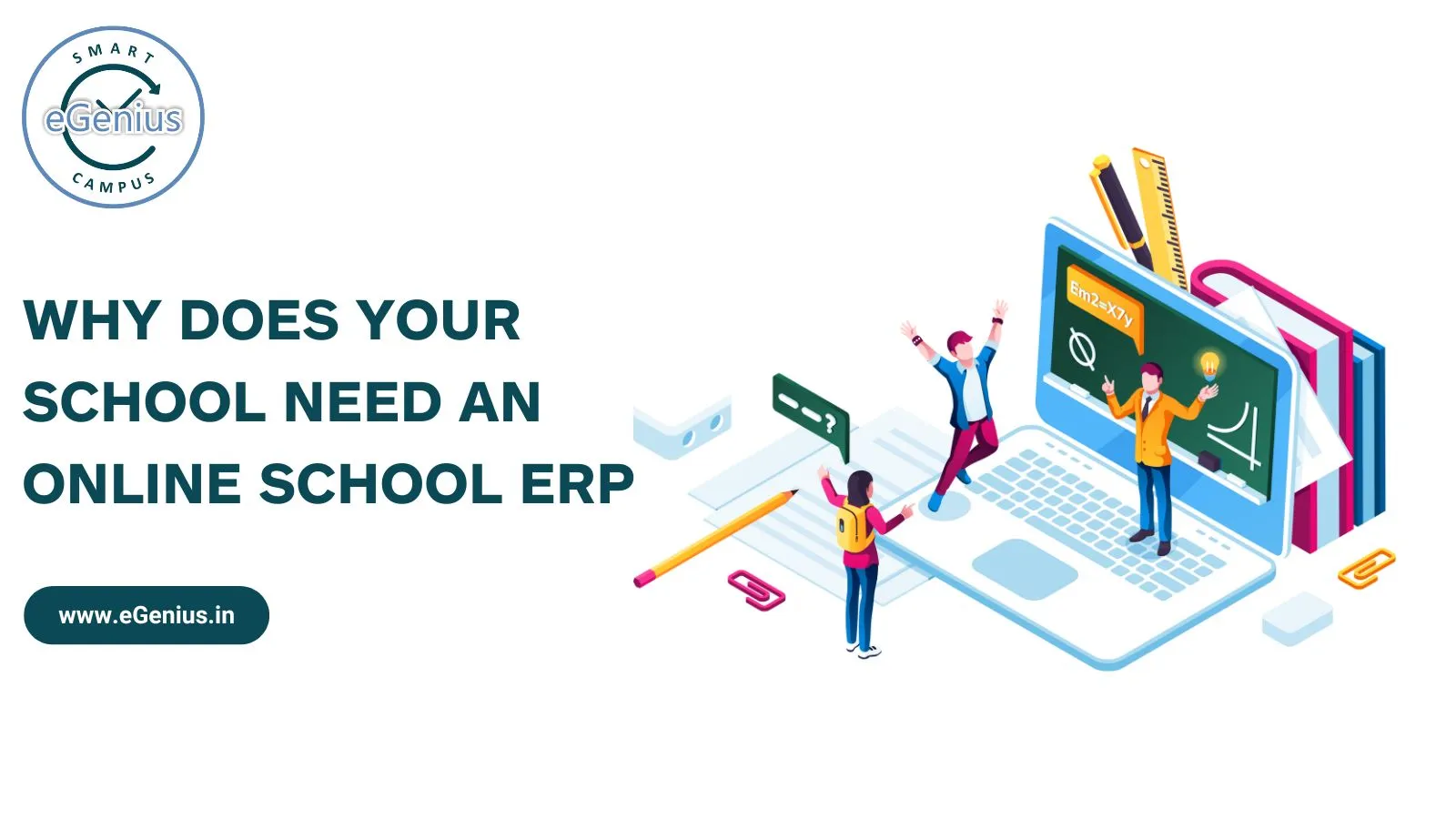As educational institutions navigate the complexities of modern administration, the need for sophisticated technological solutions has never been greater. Enter the advanced Online School ERP (Enterprise Resource Planning) system—a game-changing tool designed to address the diverse needs of contemporary schools. This blog delves into why your school needs an advanced online ERP system, highlighting its transformative benefits, advanced features, and how it can propel your institution towards greater efficiency and success.
Table of Contents
The Evolution of School Management Systems
School management systems have evolved significantly over the past decade. Initially, schools relied on basic software for tasks like attendance and grade management. However, as the demands on educational institutions have grown, so too have the capabilities of ERP systems. Modern online school ERPs offer a range of advanced features designed to address the complexities of contemporary educational environments, making them indispensable tools for forward-thinking institutions.
Key Benefits of an Advanced Online School ERP
1. Comprehensive Data Integration
One of the most significant advantages of an advanced Online School ERP is its ability to integrate data from various sources into a single platform. This comprehensive data integration ensures that all information—from student records and academic performance to financial transactions and administrative tasks—is consolidated. By providing a holistic view of school operations, an advanced ERP system enables administrators to make informed decisions based on accurate and up-to-date data.
2. Improved User Experience and Accessibility
In today’s fast-paced environment, ease of use and accessibility are critical. Advanced online school ERP systems are designed with user experience in mind, offering intuitive interfaces and seamless navigation. Cloud-based solutions ensure that the ERP system is accessible from any device, at any time, making it easier for administrators, teachers, students, and parents to interact with the system. This improved accessibility enhances engagement and ensures that users can perform their tasks efficiently, regardless of their location.
3. Enhanced Customization and Scalability
No two schools are alike, and neither are their needs. An advanced online school ERP system offers extensive customization options to tailor the software to your institution’s specific requirements. Whether it’s custom modules, unique reporting formats, or specialized workflows, an advanced ERP system can be adapted to fit your school’s unique needs. Additionally, as your school grows or evolves, the ERP system’s scalability ensures it can accommodate new requirements and increase data volume without compromising performance.
4. Advanced Analytics and Insights
Data alone is not enough; actionable insights are what truly drive improvement. Advanced education ERP systems come equipped with powerful analytics tools that can transform raw data into meaningful insights. From performance trends and predictive analytics to financial forecasting and operational efficiency metrics, these advanced analytics capabilities enable schools to proactively address challenges and capitalize on opportunities.
Learn more about Advanced Analytics and Insights
Advanced Features to Look for in an Online School ERP
When evaluating an advanced online school ERP system, consider the following features:
1. Customizable Dashboards: Personalized dashboards that display relevant information and key performance indicators (KPIs) for different user roles.
2. Advanced Security Features: Robust security measures, including data encryption, multi-factor authentication, and regular security audits, to protect sensitive information.
3. Mobile Compatibility: Mobile apps or responsive designs that ensure the ERP system is accessible from smartphones and tablets.
4. Integration with Third-Party Applications: Compatibility with other educational tools and platforms, such as Learning Management Systems (LMS) and communication apps.
Implementing an Advanced Online School ERP: Best Practices
Successfully implementing an advanced education ERP system requires careful planning and execution. Here are some best practices to ensure a smooth transition:
1. Conduct a Needs Assessment: Identify the specific needs of your school and choose an ERP system that addresses those needs comprehensively.
2. Develop a Detailed Implementation Plan: Create a roadmap that outlines the implementation phases, timelines, and responsibilities.
3. Provide Training and Support: Offer comprehensive training for all users and provide ongoing support to address any issues that arise.
4. Monitor and Optimize: Regularly evaluate the ERP system’s performance and gather feedback to make continuous improvements.
5. Engage Stakeholders: Involve key stakeholders—administrators, teachers, students, and parents—in the selection and implementation process to ensure their needs and concerns are addressed.
An advanced Online School ERP system represents a significant leap forward in educational management. By integrating comprehensive data, offering advanced analytics, and enhancing user experience, it provides a powerful tool for transforming school operations. Embracing this technology not only improves efficiency but also positions your school at the forefront of educational innovation. Invest in an advanced ERP system to unlock the full potential of your institution and drive educational excellence.
Adopting an advanced Online School ERP system is not just a technological upgrade; it’s a strategic move towards a more efficient, data-driven, and adaptable educational environment. Embrace the future of school management and watch your institution thrive.
Experience seamless school management with eGenius School ERP. Reach out today for a demo and discover how we can enhance your institution’s efficiency.














